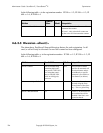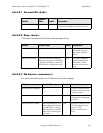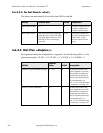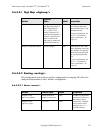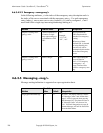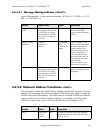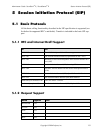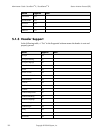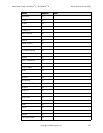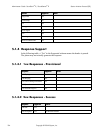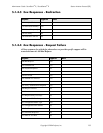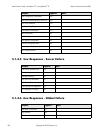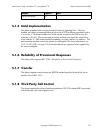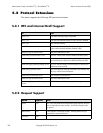
Administrator Guide - SoundPoint
®
IP / SoundStation
®
IP Session Initiation Protocol (SIP)
Copyright © 2004 Polycom, Inc. 137
5.1.5 Hold Implementation
The phone supports both currently accepted means of signaling hold. The first
method, no longer recommended due in part to the RTCP problems associated with it,
is to set the “c” destination addresses for the media streams in the SDP to zero, for
example, c=0.0.0.0. The second, and preferred, method is to signal the media direc-
tions with the “a” SDP media attributes sendonly, recvonly, inactive or sendrecv. The
hold signaling method used by the phone is configurable (for more information, see
4.6.2.1.3 SIP <SIP/> on page 115) but both methods are supported when signaled by
the remote endpoint.
5.1.6 Reliability of Provisional Responses
The phone fully supports RFC 3262 - Reliability of Provisional Responses.
5.1.7 Transfer
The phone supports transfer using the REFER method specified in draft-ietf-sip-cc-
transfer-05 and RFC 3515.
5.1.8 Third Party Call Control
The phone supports the delayed media negotiations (INVITE without SDP) associated
with third party call control applications.
606 Not Acceptable No
Response Supported Notes



